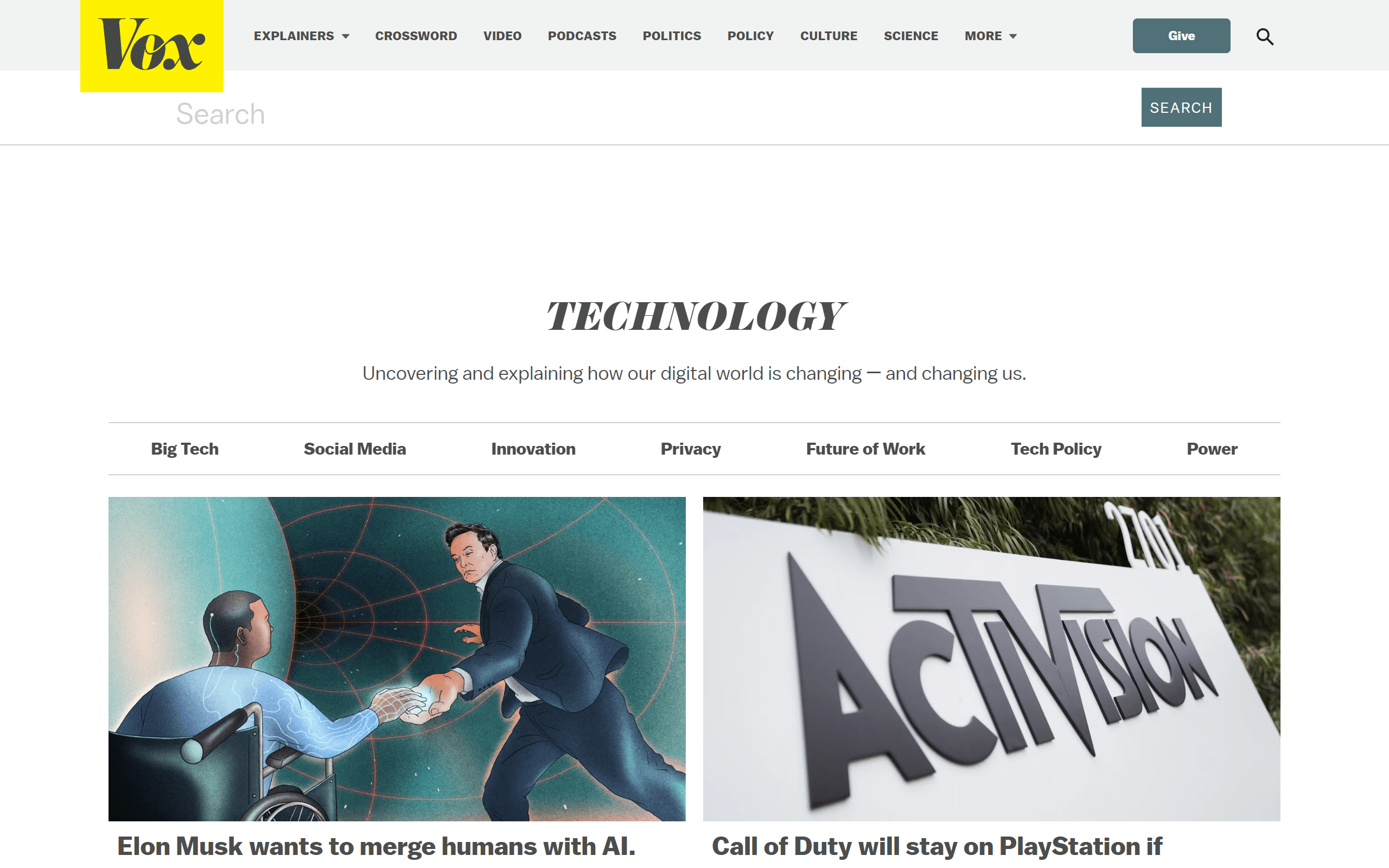Enhance Your Knowledge with the Best tech blog Featuring Industry Experts
Enhance Your Knowledge with the Best tech blog Featuring Industry Experts
Blog Article
How Blockchain Technology Is Revolutionizing Data Safety And Security
Blockchain technology is essentially modifying the landscape of information safety and security by introducing a decentralized framework that guarantees enhanced transparency and durability. Unlike typical systems, which depend on central information databases, blockchain distributes data across a network, reducing vulnerabilities and single factors of failing. The usage of advanced cryptographic methods makes certain that data continues to be tamper-proof, promoting trust among stakeholders and individuals.
The Essentials of Blockchain
Blockchain technology, a cutting edge concept in electronic data management, fundamentally changes just how info is kept and safeguarded. At its core, a blockchain is a distributed ledger that videotapes deals throughout a network of computer systems, making sure openness and immutability.
Key to recognizing blockchain is the hashing procedure, which secures transaction information into a special alphanumeric code. This cryptographic function guarantees that any modification in the purchase information results in an entirely different hash, thus protecting against meddling. The consensus mechanism, another essential part, verifies and confirms brand-new purchases through a network of nodes, therefore removing the need for a central authority.
Moreover, blockchain's append-only framework makes sure that information, when added, can not be deleted or changed. This particular guarantees a permanent and proven record of purchases, fostering trust fund amongst participants. Because of this, blockchain gives a robust structure for information honesty, offering sectors a reliable method for tracking and managing electronic information in a safe and secure, clear manner.
Decentralization and Security
Decentralization, a core principle of blockchain modern technology, significantly enhances information safety and security by dispersing control across a network instead than depending on a single, centralized entity. This circulation alleviates the danger of single factors of failing, which prevail in typical centralized systems. By spreading data throughout many nodes, blockchain ensures that even if one node is compromised, the whole network stays safe and secure. This redundancy not only strengthens the honesty of the data yet likewise increases its strength to cyberattacks and system failures.

Each participant in the network has accessibility to the entire blockchain, allowing them to validate and audit transactions independently. On the whole, decentralization is important in improving information safety and security in blockchain networks.

Cryptographic Strategies
At the heart of blockchain innovation, cryptographic methods play a crucial duty in protecting data, ensuring both discretion and integrity. Cryptography in blockchain utilizes a mix of symmetric and asymmetric formulas to encrypt data, making it accessible only to accredited celebrations.
Hash functions are another vital component, changing input data into a fixed-size string of personalities, efficiently creating a special digital finger print for every block. This makes sure that any type of attempt to change the information will certainly lead to a totally different hash, hence preserving the immutability of the blockchain. In addition, digital trademarks confirm the authenticity and integrity of deals, providing a layer of non-repudiation.
The decentralized nature of blockchain, incorporated with durable cryptographic methods, gets rid of the demand for intermediaries, decreasing prospective susceptabilities. As blockchain innovation advances, innovations in cryptography such article as zero-knowledge proofs and homomorphic encryption remain to boost safety measures, further fortifying data security in this advanced electronic ledger system.
Use Situations Across Industries

In the medical care sector, blockchain guarantees the safe and secure storage and sharing of client documents, advertising interoperability while safeguarding sensitive information from unapproved access. This innovation empowers patients with control over their clinical history and promotes smooth sychronisation amongst doctor.
Supply chain monitoring advantages significantly from blockchain's unalterable ledger, which ensures traceability and authenticity of products from origin to customer. By improving transparency, blockchain assists minimize issues such as counterfeiting and underhanded sourcing.
Furthermore, blockchain's decentralized nature is reshaping the energy field by allowing peer-to-peer power trading, where consumers can acquire and offer excess renewable resource straight. This cultivates a more sustainable and efficient power ecological community.
In the world of intellectual property, blockchain provides a tamper-proof system for makers to sign up and shield their jobs, making sure rightful acknowledgment and reasonable settlement. These varied use cases underline blockchain's role as a pivotal force in redefining information protection across sectors.
Future of Data Security
As we want to the future of information protection, blockchain innovation is poised to play a crucial role in protecting electronic details. With its decentralized and immutable characteristics, blockchain provides a durable structure for safeguarding delicate data against unauthorized gain access to and cyber dangers. This modern technology makes sure that once data is videotaped, it is virtually impossible to modify without detection, therefore giving a significant advantage over traditional information storage space look at this now techniques.
The combination of blockchain with other advanced modern technologies, such as expert system and the Internet of Points (IoT), is anticipated to boost information defense techniques better. By leveraging wise agreements, organizations can automate and implement protection protocols, minimizing human error and enhancing performance. In addition, blockchain's ability to give traceable and clear transactions will bolster depend on and liability in data monitoring techniques.
As governing landscapes advance, blockchain's compliance-friendly nature will certainly become significantly relevant. It can assist organizations satisfy stringent data security laws, such as the General Data Security Guideline (GDPR) and the California Customer Privacy Act (CCPA), by offering proven documents from this source of data processing activities. Inevitably, blockchain's special characteristics setting it as a transformative tool in the continuous quest to secure the electronic globe versus ever-evolving cyber risks.
Verdict
Blockchain technology represents a paradigm change in information safety and security by leveraging decentralization and cryptographic strategies to enhance transparency, trust, and information integrity. Its capacity to remove solitary factors of failure and employ consensus mechanisms substantially lowers the risk of fraudulence and cyberattacks. This cutting-edge framework not only encourages individuals with better control over their information yet also straightens with governing conformity. As cyber hazards progress, blockchain emerges as an essential device for robust data protection throughout different markets.
Blockchain technology is essentially altering the landscape of information safety by presenting a decentralized structure that promises boosted transparency and durability. Unlike typical systems, which depend on central data repositories, blockchain distributes data throughout a network, reducing vulnerabilities and single points of failing.Decentralization, a core principle of blockchain modern technology, considerably enhances data safety and security by distributing control across a network instead than counting on a single, centralized entity.At the heart of blockchain innovation, cryptographic strategies play a pivotal function in safeguarding information, guaranteeing both discretion and stability.Blockchain modern technology represents a paradigm shift in data protection by leveraging decentralization and cryptographic methods to boost transparency, count on, and information honesty.
Report this page